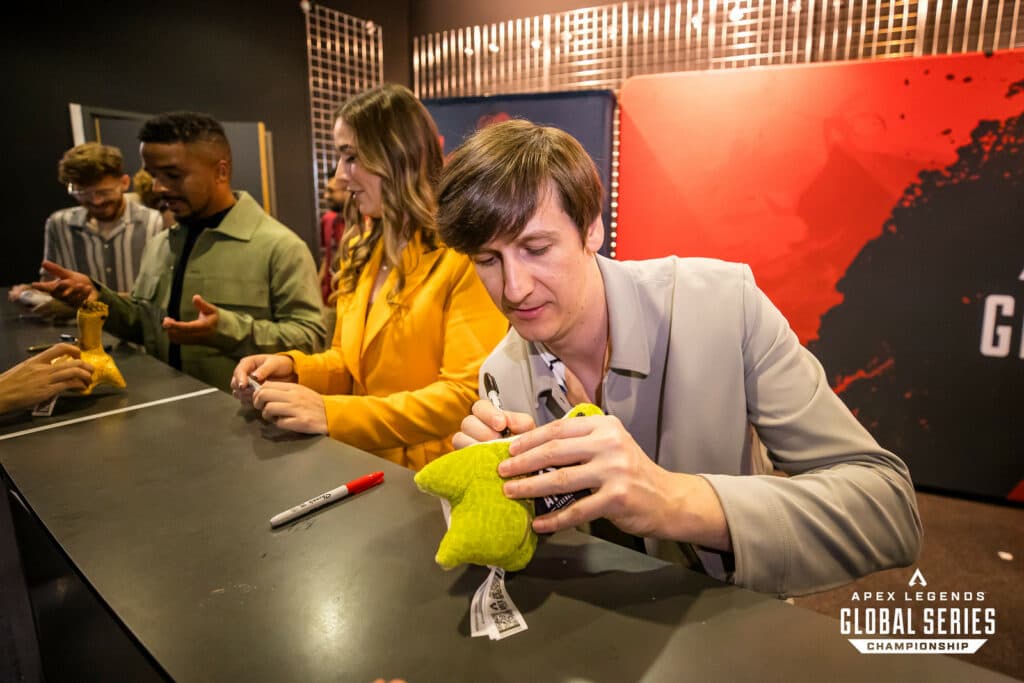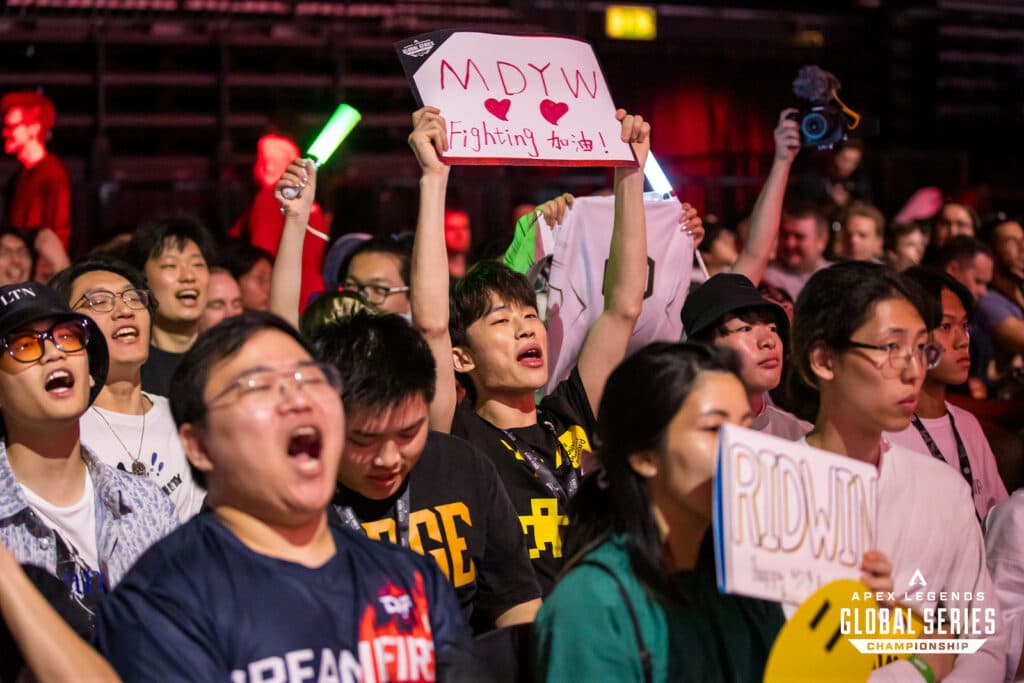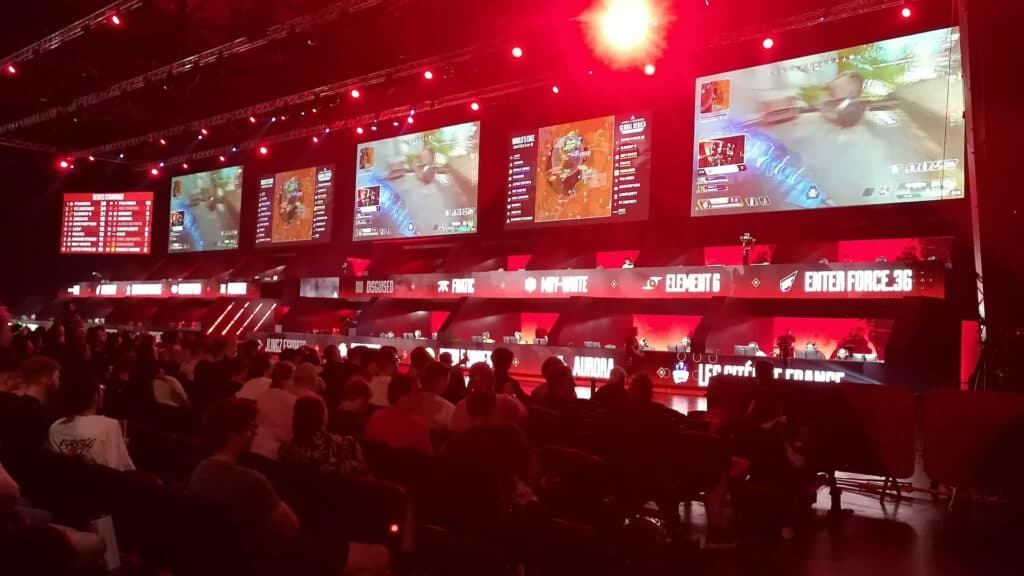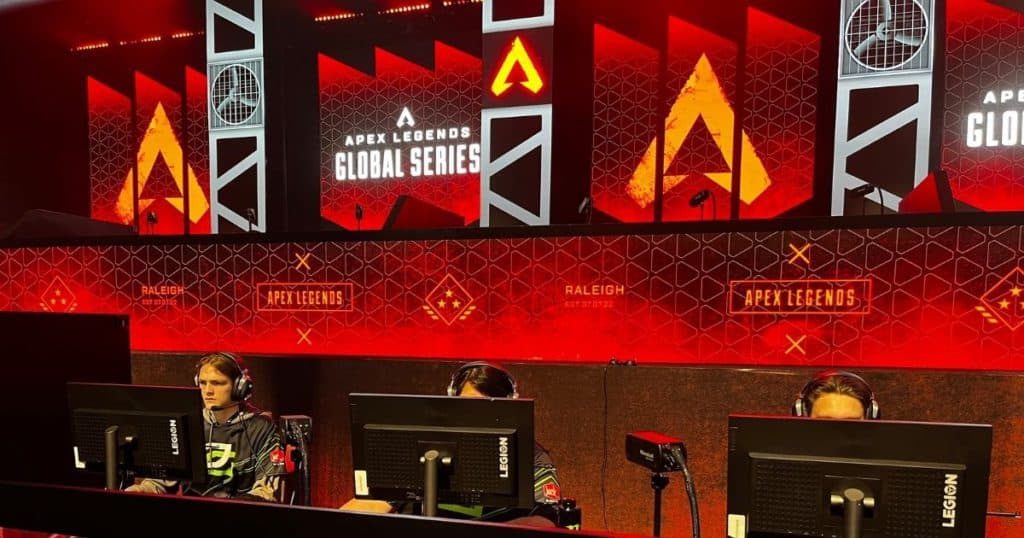Australian esports caster Genome talks about the challenges and realities of an esports career in the Apex Legends Asia-Pacific region.
Making it in the esports industry is like scaling a mountain. The mountain in the Asia-Pacific (APAC) region is much steeper at times. It's an industry that depends on sponsorship and funding. Job security is an alien concept and not something to be counted upon. Like it does with the the regular sports, the outside world perceives esports as a space for talented gamers, their teams, and coaches to compete at a high level.
However, just like the traditional sports industry, esports is also held together by intangible roles and performances in the background. A thousand invisible, guiding hands that may never get their due on game day.

There are gaps between its public-facing roles that garner all the attention. Opportunities are rife for those who see these gaps and fill them, but it takes a lot of work to arrive at success.
Australian esports personality Kale "Genome" Morton is among these people.
Through years of hard work and perseverance, Genome finds himself at the pinnacle of Competitive Apex Legends. As one of the most talented casters from the APAC region, Genome is now a mainstay in the Competitive Apex Legends scene. But, like many that came before him, success wasn't a straight line and continues to be a long, winding road into a fog of war.
In conversation with esports.gg, he spoke about his journey and his perception of the present-day esports industry.
Genome, Apex Legends, and the long journey
Like most of the esports industry, Genome comes from humble beginnings. Competitive Gaming as we know it has only become a mainstream industry in the last decade. Genome's presence in this industry predates this, which is easy to forget given how youth-obsessed esports tends to be.
Regardless, Genome's been around the block and he's seen the industry grow into what it is today.
Reminiscing about his early days, he talks about when he first had the idea of getting into esports. "When I was about 19, and I was sitting in the library at University--watching the Day 9 dailies, thinking about this kind of stuff like damn, I'd love to get into Starcraft 2".
The esports scene in Australia was so tiny that you couldn't even call it an industry. "That would have been, like, 2009? How many people were making a full-time living out of esports in Australia back then? You can probably count them on your fingers. Not so many at all. It was very, very rare."
Genome had to go a long way before he made his breakthrough. This is still the case for anyone considering a career in esports.
"I know you said before that I'd come into this with Apex Legends, and I know you meant that's where I've come to prominence, but I've been doing stuff in esports for a long time before that," Genome said.
While the esports industry is exploding in the USA and EU, it's still nascent in the rest of the world. Genome's experience and his career trajectory speaks to this.
Long Shot and Australian esports talent
Genome built his career from the ground up as a caster and has become a household name in the Australian esports industry as the founder of Long Shot. Long Shot is the official broadcast partner for the Apex Legends Global Series (ALGS) in the APAC region, and the main Apex esports league supported by publisher EA.
Genome co-founded Long Shot with Roots, and it has grown into a platform that provides esports opportunities in Australia. In some cases, other regions as well. Long Shot's involvement in the ALGS has increased over time. It took a significant step forward in the recently concluded ALGS Year 3 championship.
This is a matter of pride for Genome--In fact, It's one of his proudest achievements in the past year.
"When you finally do crack through and get to be a part of the pinnacle of esports, or at least as close to it in Apex Legends, it's such a special moment," he sid. "The thing I probably felt most proud of this year probably came at ALGS championships where we got some of the Long Shot guys over there to help out."
Playing a role at the biggest LAN event in Apex Legends is a significant motivator for his team, but also for esports in Australia. After all, ALGS served as a breakthrough for Genome. "I've been lucky enough to become a mainstay of the ALGS. I've been to the last five LANs I guess?"
"I finally got over there for my first big broadcast, my first LAN experience in Sweden. Since Zenox and Elfish came over for the Sweden LAN, there's been no one else from Australia that's managed to make it over."
The statement speaks for itself and highlights how vital Long Shot was and is to the scene.
APAC and strength in numbers

There are a number of challenges for people looking at an esports career in the Asia-Pacific region--Challenges that aren't found in developed regions like the USA and Europe.
As a veteran of the esports industry, Genome knows this all too well. He believes that the APAC regions' strength lies in its unity and strength in numbers. "I think what APAC has going for it, and Apex is a great example of this, is coming together as a region. The power in numbers."
Genome says the APAC region faces a unique challenge--access. "The US has access to all these tournaments and events, and the reason that happens is brands, sponsorship, and marketing budgets."
"They're from a US company or from one that has a US division and they can budget for the 300 million odd people the US has," Genome says. "With the APAC region, you can't really do that per country. This is what we see in Australia all the time."
"There's not enough people to sell the dollars to, get the eyeballs in, and put on big enough events, put together big enough prize pools to attract people in the way that we see overseas."
This is a challenge that the strength of the APAC region can overcome. "We can get around that if we sort of band together as a region. And that's tough sometimes. Just as a hypothetical, if Razer has an Australian office, a Thailand office, or a Vietnam office, I don't know if it works exactly like that. If it's all splintered, it can get very hard to talk to all of these people and try and get a budget that serves the whole region and makes for meaningful events."

The ALGS represents a great example of how this can happen. "If we can come together in situations, like we do for ALGS where essentially EA's budget for the whole region gets pulled together, like all of a sudden: BAM! Year 4 they've announced it," Genome said.
"$500,000 prize pool, equal to NA, equal to EMEA and APAC North. That's super cool! If we can stick together a little bit more, we stand a better chance of putting together world-class events, having world-class training and practice, and therefore be able to show up on the world stage."
The (esports) Winter is coming
In spite of its growth, the esports industry has taken a hit in recent years. Orgs are leaving the scene and like every other industry, esports is seeing a lot of layoffs as of late. Genome identifies this as an esports winter of sorts. "The investment money has dried up. That's harmed us in a lot of ways."
Sure enough, there's been an exodus of orgs from competitive Apex since Year 3 concluded.
Genome acknowledges the privilege of his position as an ALGS caster and broadcast partner. "I think I'm in a fortunate position at the moment where through Long Shot, and through my commentary, we're sort of working directly with EA. And that's, you know, that's kind of where the money is, right? People are still buying loot boxes, right? Like, those Apex Packs are still selling pretty well."

It paints an interesting picture on the direction of Apex Legends as an esport.
Most opportunities come from organizations in the form of positions for content creators, video editors, social media managers, and marketers. But with the investment and sponsorship money drying up, these opportunities are dwindling. It appears that people and organizations that are directly working with EA enjoy some semblance of security in this case.
Genome, Apex Legends, and looking into the future
Genome's story reveals that the esports industry still has a long way to go, in spite of its growth. Especially in regions like Asia and Australia.
Opportunities aren't as difficult to come by as they used to be, but they're still uncommon. People aspiring for a career in esports have to brace themselves for a grind that can potentially last decades before they achieve a breakthrough. Genome is the perfect example of this.

He's also an example of the good bits that follow a breakthrough. This industry, for all its highs and lows, is still an extremely satisfying and enjoyable ride--one that keeps you going.
"There was a lot of years toiling away in the trenches, you know doing stuff for free, doing stuff for not very much money."
The long and winding road continues on.
Stay tuned to esports.gg for esports news and Apex Legends information.